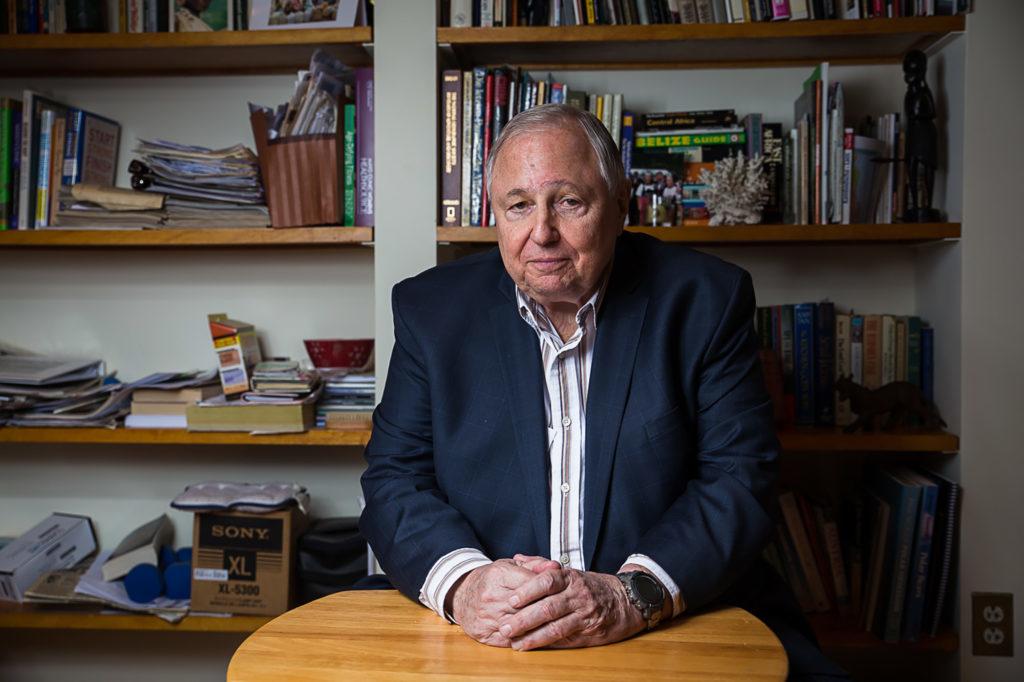Applications to the law school jumped 6.3 percent during last year’s admissions cycle, a law school spokeswoman said Monday.
The more than 6 percent increase means that nearly 7,700 students applied to the law school in 2018 – the largest pool since 2011 and up from about 7,200 last year. Law experts said the rise could be a continuation of the “Trump bump” law schools saw last year – as well as the result of GW’s location in the nation’s capital and recent media exposure for GW faculty.
Law school spokeswoman Liz Field said the law school has been “fortunate for the last decade to receive the second largest number of applications in the country because of the depth and breadth of our programs.”
Field declined to provide data about law school admissions during last year’s application round. Field said the school works to recruit a diverse pool of students each cycle.
“We recruit all students, and, given the incredibly diverse nature of our pool, we do not track first-generation students,” Field said. “In addition, we have students from 231 colleges represented and 13 countries represented in the 2018 incoming class.”
The increase comes two years after the law school dropped its $80 application fee. Applications to the school increased last year by about 9 percent, which experts attributed to the waived fee and a national “Trump bump” in law school applications.
Faculty and law experts said the influx in application numbers is likely a direct result of the political climate under President Donald Trump, along with increased media presence of law school faculty.
John Banzhaf, a public interest law professor, said the increase in applications directly correlates with an increased interest in law nationally under the Trump administration. He said students could see law as a way to combat President Donald Trump’s policies, like the “zero-tolerance” immigration policy that separated families at the border earlier this year.
“Now we’re back at the point where lawyers are to a certain extent seen as heroes,” Banzhaf said. “They marched into the airport and they took on Trump and they have to prevent people from being deported.”
Banzhaf added that the law school has experienced a “significant” amount of media attention in recent months from Michael Avenatti, an alumnus who represented adult film star Stormy Daniels in her suit against Trump earlier this year, and Jonathan Turley, a law professor, who has been featured on television as a commentator several times. The media attention could keep application numbers rising, he said.
“Every time there’s a legal development and Jonathan Turley or I or many of my colleagues go on TV, people see George Washington University,” he said. “People will increasingly see the words and hear the words ‘George Washington University’ and associate that with the presence in D.C.”
Banzhaf added that the improving state of the economy contributes to a boost in application numbers and said students are more interested in applying to law school since lawyer compensation is rising.
“The economy is booming again and people are interested in going to law school – we no longer have to shrink classes and lower standards,” he said. “So that obviously helps the financial situation at the law school.”
Andrew Popper, a professor of law and government at American University Washington College of Law, said the number of applicants to law schools increased across the board in 2018 because of the growing demand for more “qualified and competent” lawyers, especially under the current political climate.
Law school applications nationwide increased by 10.6 percent between 2016 and 2017 after a five-year decline, according to a report issued by the Law School Admission Council.
Popper added that GW’s law school is likely able to increase its number of applicants year after year because of its location, which offers students access to government centers and Capitol Hill.
“I think prospective students are very aware of that, and that is – in large part – a good reason why law schools in the area are as popular as they are,” he said.
Popper said the “Trump bump” could have also contributed to the increase, but he said the political environment has given rise to the much broader idea that “lawyers indeed play a central role in governance and that they play a central role in our democracy.”
Kyle McEntee, the executive director of Law School Transparency, a non-profit focused on legal education policy, said the increase in applications at GW has to be read in the context of “monumental” decreases in applications to law school in previous years.
“People are looking at ways that they can contribute to the betterment of society, and one way to do that is through the rule of law, and the people who have the closest command of the rule of law are the people are lawyers,” he said.
Hayden Smith and Jessica Baskerville contributed reporting





